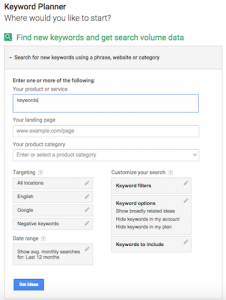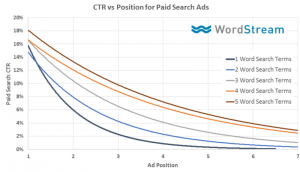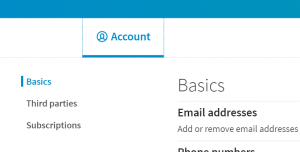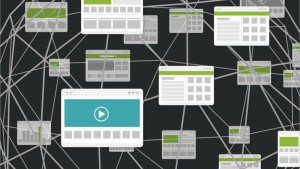Companies like yours depend on all kinds of software to accomplish their business goals.
Not making the most out of the various software solutions available in the market is a huge mistake.
It’s important you remain well aware of what’s out there and how they can help your company gain better results.
One example is point-of-sale (POS) software. If you’re not currently utilizing this type of software, now is a good time to consider its benefits.
What is POS software ?

POS software is the kind modern companies use during the last step of the transaction in a brick-and-mortar business.
It’s often a cash register.
Though, these days, many businesses use computers or even tablets to host their POS software.
This digital asset allows you to:
- key in the products a customer is buying,
- tally up their total cost,
- factor in any discounts or coupons,
- and finally print them off a receipt.
Most versions also update your inventory levels after every transaction.
Why should you invest in POS software ?
If you’re not sold on the idea yet, consider the following reasons every business should invest in POS software ASAP:
1. Checking out takes too long.

One of the many benefits of software is that it almost always reduces unnecessary delays in your business processes.
In a sales environment, it’s worth exploring anything you manually do to make sure there isn’t a way software could do it better. This is especially true at the point of sale.
With point of sale software, everything from touch screen buttons to multiplier options and quantity adjusters make it easy to process a customer’s order – and in a matter of seconds.
Ultimately, this means more customers can be serviced in a day.
2. Inventory gets adjusted.

Like we mentioned above, modern POS software is capable of adjusting your inventory levels immediately.
In the past:
You’d have to do this manually, which made an extremely important process fraught with human error.
POS software eliminates these problems. There is no longer any lag time between someone purchasing a product and your inventory showing it.
This means you can alert suppliers immediately when a product goes out of stock.
3. Track employee performance.

While there are all kinds of investments you need to make to create a successful company, hiring employees is by far the most volatile:
- Good employees help take your business to higher heights.
- Bad employees can make life nearly impossible for you and cause you to lose money.
Without the right software in place, it can be tough to accurately track where each of your staff members fall regarding employee type.
POS software tracks every sale your employees make and organizes analytical reports, making it easier for you to assess who is helping your company grow and who’s holding it back.
4. It’s a comprehensive solution.

As we mentioned at the beginning, most companies have a good amount of software they depend on for getting the job done. This isn’t always a good thing though.
Having too many platforms can greatly inhibit productivity, particularly if they start to become a burden. Just getting an employee trained on various versions can be a lot of work.
With POS software:
- You get a number of important features under one roof.
This means all important tasks (e.g., tracking inventory, logging employee hours, ringing up sales, analyzing sales patterns, and so on) will follow the same basic protocol.
As a result, employees will have an easier time using the platform you invest in.
5. Track your KPIs.

Aside from tracking your employee activities and hours, there are all kinds of KPIs (key performance indicators) you’ll want to keep an eye on, too:
- Stock levels
- Sales tax liability
- Customer identification
- Best-selling item/s per month
- Customers with the most purchases for a certain period
All these and much more are important KPIs to help you create an even bigger business.
In the past, this kind of information takes hours to compile. For some, it demands days of work. With POS software, you’re just a few clicks away from this vital information.
6. Learn about your customers.

Speaking of KPIs:
How much do you currently know about your customers?
A lot of retailers don’t know much at all. At best, they have some very macro-level information that doesn’t lead to much in the way of increasing profits.
Imagine what you can do with more information about your customers:
- You’ll begin seeing important sales patterns that affect your inventory and operations for the better.
- You can keep track of things, like email addresses and phone numbers, so you’ll have an easier time connecting with your customers.
7. Stop theft.

We’ve established that POS software can go a long way toward helping you manage your inventory levels.
However:
This means more than just letting suppliers know when you need more products.
You can be losing profits because a customer, or even one of your salespeople, is stealing from you. This can be frustratingly difficult to verify though.
Even if you do inventory every night, knowing exactly when your products go missing can be tough to call.
With POS software, you have a very powerful tool in the battle against thieves. The solution makes it easier to decipher whether it was a customer or an employee who stole from you, and roughly when the theft actually happened.
8. Track promotions.

Every business owner knows that, from time to time, they have to throw a promotion or two to increase revenue.
Special sales get customers excited and can pack your store for days at a time.
The problem is that:
Promotions can be very difficult to track without POS software.
With one, keeping a tally of customers, price levels, and items associated with a promotion becomes a whole lot easier.
Final word
Point-of-sale software is essential for the modern retailer. If you aren’t using it, expect that your business will always struggle, especially compared to the competition. Given most POS software’s affordability, there’s simply no good reason to operate without it.
Play with these ideas and tell us what you think. Post below and let us know what works for you!
(186)
Report Post







